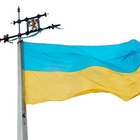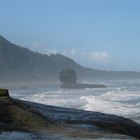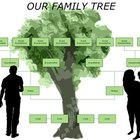
Finding people in Cuba is difficult, largely due to the country's notoriously bad internet connectivity. Unlike other countries in which you can easily track someone's digital footprint, it's unlikely that your Cuban relatives will have any kind of online presence at all. That rules out Google, Facebook and Twitter as potential search tools. The situation is slowly changing but for now, you'll need to focus your efforts on traditional people-finding resources such as phone directories and private investigators.
Use the Telephone Directory
The website "Cuban Telephone Directory" is not actually an official White Pages, but it does claim to have the details of more than 10 million fixed and mobile phone numbers throughout Cuba. The numbers are collated from the internet and are added by the website's users. Per the United States, numbers are organized by surname and geographical area. To run a search, type the person's name and province into the search fields. Select whether you want the person's mobile or landline number and hit "search" to pull up any matches. Paginas Blancas has a similar service. If your relative is listed at either site, you should get her up-to-date contact details.
Hire a Professional Search Agency
If you really want to find someone in Cuba, call in the professionals. A private investigative agency has access to all sorts of government records that aren't available outside of Cuba and can help find family in Cuba with whom you have lost contact. The more information you provide, the more likely it is that the investigator will find the people you're looking for – names, locations, ages, former schools or employers are all useful pieces of information. Reputable agencies will offer a free initial consultation so you can determine the scope and price of their services.
Visit Cuba
While it is still not possible to travel to Cuba for general tourism, you can travel for one of 12 pre-approved reasons. One of those reasons is "visiting relatives." This category is self-authorizing, which means you get to decide whether you are legitimately traveling to Cuba to visit your family members. Once in the country, ask around your relative's hometown, a former school or workplace, or anywhere else he may be associated with, to see if you can discover his whereabouts. You likely will need a visa for entry into Cuba. For information, contact the Cuban Embassy in Washington D.C. or a travel agency specializing in Cuba visa applications.
Contact the Cuban Red Cross
In certain circumstances, the Cuban Red Cross can help you look for your relatives in Cuba. This organization exists to reunite family members who have lost contact due to migration or natural or man-made disasters. If that situation applies to you, then you can access Cuban Red Cross's services free of charge. Call the telephone number on the website for a confidential discussion about how the service might help you.
Related Articles

How to Find a Friend in Ukraine

How to Find a Telephone Number in New ...

How to Find Lost Relatives

How to Find Someone's Relatives

How to Find Obituaries From Over 10 ...

How to Find a Person in Canada

How to Find People in London, England

How to Find Out If a Family Member Has ...

How to Find People Who Live in Dublin, ...

How to Find Someone in Scotland

How to Find Deceased High School Alumni

How to Find Out if You Are Related to ...

How to Map German Surnames

How do I Find Lost Relatives in South ...

How to Find an Ex-Husband

How to Find a Relative in South Africa

How to Locate a Korean War Veteran

How to Start a Fan Club

How to Trace the History of a Name

How to Find an Ex Boyfriend Online
References
- Business Insider: Here’s What Internet is Like in Cuba
- Cuban Telephone Directory
- Paginas Blancas
- U.S. Embassy in Cuba: Traveling to Cuba
- CNN Travel: Rules for Visiting Cuba
- International Counter Intelligence Service: Lost People
- International Committee of the Red Cross: Restoring Family Links in Cuba
Resources
Writer Bio
A former corporate real estate lawyer, Jayne Thompson writes about law, business and personal finance, drawing on 17 years’ experience in the legal sector. She holds a Bachelor of Laws from the University of Birmingham and a Masters in International Law from the University of East London. Her work has appeared on numerous legal blogs including Quittance, Upcounsel and Medical Negligence Experts. Find her at www.whiterosecopywriting.com.
Photo Credits
cactus-cuba image by Norberto Lauria from Fotolia.com